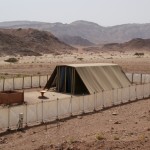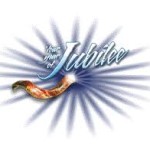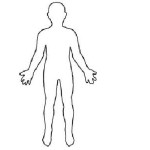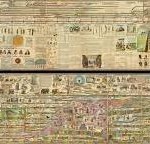Congregation Beth Mordecai
Congregation Beth Mordecai
An inclusive congregation affiliated with the Conservative Movement.
Your Jewish Home for the Soul!
An inclusive congregation affiliated with the Conservative Movement.
Your Jewish Home for the Soul!
May 30, 2014 By bethmordecai no comments.
 Parashat Naso 2014/5774 (Triennial I) -- The Relationship Between the Mundane and the Holy
Judaism teaches that there is a separation between "hol," what is mundane in life, and "kodesh," what is holy. Yet, is this separation permanent? Are there ways to connect the mundane to the holy, to make each act of life a sanctification of God? Join us for this week's Parashah class as we use the teachings of Hasidic master R. Tsaddok Hakohen of Lublin on Parashat Naso to explore this question.
Parashat Naso 2014/5774 (Triennial I) -- The Relationship Between the Mundane and the Holy
Judaism teaches that there is a separation between "hol," what is mundane in life, and "kodesh," what is holy. Yet, is this separation permanent? Are there ways to connect the mundane to the holy, to make each act of life a sanctification of God? Join us for this week's Parashah class as we use the teachings of Hasidic master R. Tsaddok Hakohen of Lublin on Parashat Naso to explore this question.
Category : Online Learning Online Parashah Class Tag : clerics expectations holiness holy israelites levites mundane naso online learning online parshah class potential rabbis weekly torah portion נשא
May 23, 2014 By bethmordecai no comments.
 Parashat B'midbar 2014/5774 (Triennial I) -- Size Doesn't Matter
In this week's Torah portion we read how the Tent of the Meeting is the place for Israel to gather and the place to house God's Presence in their journey through the desert. But how can one small place contain so many people and so much glory? It seems too small! Yet, there are other places in the Bible where "what is less is able to contain what is more." Can this teach us about the importance of "size" in the Bible, especially given the small size and great impact of the Jewish people? Is it possible that when it comes to things that[...]
Parashat B'midbar 2014/5774 (Triennial I) -- Size Doesn't Matter
In this week's Torah portion we read how the Tent of the Meeting is the place for Israel to gather and the place to house God's Presence in their journey through the desert. But how can one small place contain so many people and so much glory? It seems too small! Yet, there are other places in the Bible where "what is less is able to contain what is more." Can this teach us about the importance of "size" in the Bible, especially given the small size and great impact of the Jewish people? Is it possible that when it comes to things that[...]
Category : Online Learning Online Parashah Class Tag : b'midbar bamidbar chosen people numbers online learning online parashah class parashah parsha parshah size tent of meeting weekly torah portion במדבר
May 16, 2014 By bethmordecai no comments.
 Parashat B'hukkotai 2014/5774 (Triennial I) -- Is The Earth At Fault
We normally think of the earth and all it contains as being some of the most beautiful creations of God. Throughout the Torah, the earth is laid to waste when humans commit sins, a trope that has become very popular today in environmentalist circles. But is it possible that according to our Torah portion today, Parashat B'hukkotai, the blame for human transgression should not be laid solely at the feet of humanity? Should the earth bear some responsibility for the transgressions that lay it bare? Check out today's class for this fascinating conversation!
Parashat B'hukkotai 2014/5774 (Triennial I) -- Is The Earth At Fault
We normally think of the earth and all it contains as being some of the most beautiful creations of God. Throughout the Torah, the earth is laid to waste when humans commit sins, a trope that has become very popular today in environmentalist circles. But is it possible that according to our Torah portion today, Parashat B'hukkotai, the blame for human transgression should not be laid solely at the feet of humanity? Should the earth bear some responsibility for the transgressions that lay it bare? Check out today's class for this fascinating conversation!
Category : Online Learning Online Parashah Class Tag : abundance earth environmentalism human impact human nature k'li yakar keli yakar keli yaqar online learning online parashah class parasha parsha parshah torah weekly torah portion בחוקותי
May 9, 2014 By bethmordecai no comments.
 Parashat B'har 2014/5774 (Triennial I) -- What's a Jubilee?
In this week's Torah portion we read about the "yoveil," the commemoration of the Jubilee every 50 years. But what is a Jubilee? Where does the term come from and what is it all about? Join us as we discuss the physical and spiritual qualities of the Jubilee and its message for our day.
Parashat B'har 2014/5774 (Triennial I) -- What's a Jubilee?
In this week's Torah portion we read about the "yoveil," the commemoration of the Jubilee every 50 years. But what is a Jubilee? Where does the term come from and what is it all about? Join us as we discuss the physical and spiritual qualities of the Jubilee and its message for our day.
Category : Online Learning Online Parashah Class Tag : b'har behar blasts d'ror jubilee liberty online learning online parashah class parsha parshat Rosh Hashanah shofar yoveil בהר דרור יובל שופר תרועה
May 2, 2014 By bethmordecai no comments.
 Parashat Emor Triennial I (2014/5774) -- A Disabled Priest?
This week's Torah portion, Parashat Emor, we learn that any priest who has a "defect" is not allowed to participate in the sacrificial offerings (Lev 21:17). Can we learn anything from this verse on the Torah's treatment of people with disabilities, including how they can participate in our communities? Join us for this important conversation!
Parashat Emor Triennial I (2014/5774) -- A Disabled Priest?
This week's Torah portion, Parashat Emor, we learn that any priest who has a "defect" is not allowed to participate in the sacrificial offerings (Lev 21:17). Can we learn anything from this verse on the Torah's treatment of people with disabilities, including how they can participate in our communities? Join us for this important conversation!
Category : Online Learning Online Parashah Class Tag : emor online learning online parashah class parashah parsha parshat אמור
April 25, 2014 By bethmordecai no comments.
 Triennial I (2014/5774) -- The Unique Holiness of Humanity
In Jewish terms, being "holy" is often associated with being different than what's ordinary. For instance, Jewish tradition teaches us that human beings are the most distinct and different kind of creation there is which is why we "can be holy" like God (Lev 19:2). But what is that difference? What makes us uniquely human and what is our task to accomplish in this world in order to be holy? Join us for today's parashah class to discuss together or watch at your convenience on YouTube.
Triennial I (2014/5774) -- The Unique Holiness of Humanity
In Jewish terms, being "holy" is often associated with being different than what's ordinary. For instance, Jewish tradition teaches us that human beings are the most distinct and different kind of creation there is which is why we "can be holy" like God (Lev 19:2). But what is that difference? What makes us uniquely human and what is our task to accomplish in this world in order to be holy? Join us for today's parashah class to discuss together or watch at your convenience on YouTube.
Category : Online Learning Online Parashah Class Tag : holy k'doshim kedoshim
April 18, 2014 By bethmordecai no comments.
 Shabbat Hol Ha-Moed Passover 2014/5774: Time for a Festival In the portion for this Shabbat of Hol Ha-Moed Passover, we read the term "moed" as it refers to the holiday of Passover...or as it refers to the time of Aviv (Spring). So which is it? Does "moed" mean "festival" or "time"? We will explore this question as it will help us understand the unique qualities of Jewish festivals like Passover and how these holidays have special significance for us today. Classes from other years...Shabbat Hol Ha-Moed Passover 2013/5773 -- Keeping Shabbat in Passover
Shabbat Hol Ha-Moed Passover 2014/5774: Time for a Festival In the portion for this Shabbat of Hol Ha-Moed Passover, we read the term "moed" as it refers to the holiday of Passover...or as it refers to the time of Aviv (Spring). So which is it? Does "moed" mean "festival" or "time"? We will explore this question as it will help us understand the unique qualities of Jewish festivals like Passover and how these holidays have special significance for us today. Classes from other years...Shabbat Hol Ha-Moed Passover 2013/5773 -- Keeping Shabbat in Passover
Category : Online Learning Online Parashah Class Uncategorized Tag : akitu bounty chizkuni ear festival food grain grateful harvest hizkuni hol hamoed joy keter yonatan moed online learning online parashah class passover shabbat time חזקוני כתר יונתן מועד עת פסח
April 11, 2014 By bethmordecai no comments.
 Triennial I (2014/5774): There Is No Earlier and There Is No Later in Torah
The first words of our Torah portion begin with the words "aharei mot sh'nei b'nei aharon -- after the deaths of Aaron's sons." Yet the demise of Aaron's sons, Nadav and Avihu, happened three Torah portions earlier in Parashat Sh'mini, so why does the Torah have to teach us that our Torah portion occurs after their death! One explanation is that this proves that there is no earlier (past) or later (present) when it comes to the chronology of events as it is written in the Torah. During today's class we will explore this explanation to try to understand it's implications for the meaning of Torah -- should[...]
Triennial I (2014/5774): There Is No Earlier and There Is No Later in Torah
The first words of our Torah portion begin with the words "aharei mot sh'nei b'nei aharon -- after the deaths of Aaron's sons." Yet the demise of Aaron's sons, Nadav and Avihu, happened three Torah portions earlier in Parashat Sh'mini, so why does the Torah have to teach us that our Torah portion occurs after their death! One explanation is that this proves that there is no earlier (past) or later (present) when it comes to the chronology of events as it is written in the Torah. During today's class we will explore this explanation to try to understand it's implications for the meaning of Torah -- should[...]
Category : home Online Learning Online Parashah Class Tag : chronology exegesis future history ibn ezra online learning online parashah class or hachayim or hahayyim past rashi torah
March 21, 2014 By bethmordecai no comments.
2014/5774 (Triennial I): A Strange Fire? In this week's Torah portion, Aaron's sons Nadav and Avihu bring an "eish zarah," a strange fire, to the tabernacle and instead of having their gift accepted, they are personally consumed by a fire from God. What went wrong? What was this strange fire that God not only rejected but caused God to kill them? Can we learn anything from this episode about how we should or should not approach God in our worship? Join the class to find out! Classes from other years... 2013/5773 -- Why Is Pig So Unkosher? Details of Photo The Death of Nadab and Abihu, engraving by[...]
Category : home Online Learning Online Parashah Class Tag : aaron avihu fire nadav online learning online parashah class parashah parsha parshah sh'mini shemini weekly torah portion worship
March 14, 2014 By bethmordecai no comments.
 Parashat Tzav (צו) Triennial I (2014/5774): The Always Burning Flame
Fire is often used as a metaphor for motivation, as in the phrase "to have a burning passion." Also, like motivation, fire is a limited resource that can only burn when it has enough fuel. Yet, our Torah portion today speaks of an "always burning flame" upon the altar that seemingly does not need to be renewed. Is it possible that like this burning flame, our own passion and motivation can be constant WITHOUT the need for refuel? Check out the class to find out!
Parashat Tzav (צו) Triennial I (2014/5774): The Always Burning Flame
Fire is often used as a metaphor for motivation, as in the phrase "to have a burning passion." Also, like motivation, fire is a limited resource that can only burn when it has enough fuel. Yet, our Torah portion today speaks of an "always burning flame" upon the altar that seemingly does not need to be renewed. Is it possible that like this burning flame, our own passion and motivation can be constant WITHOUT the need for refuel? Check out the class to find out!
Category : Online Learning Online Parashah Class Tag : eternal flame fire motivation online learning online parashah class parsha passion tsav tzav weekly torah portion צו